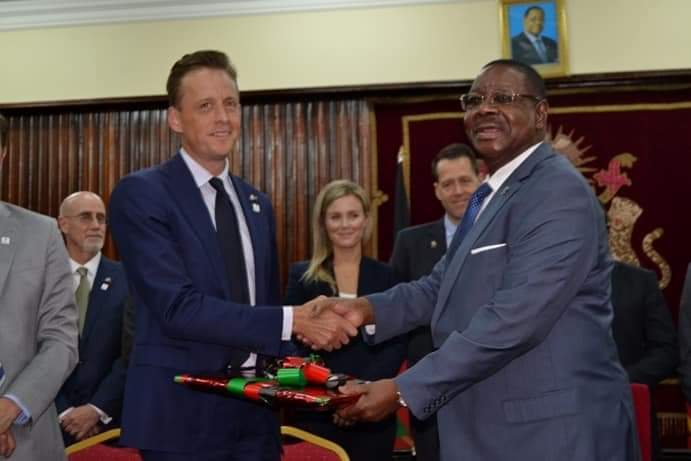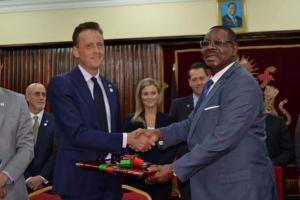
President Peter Mutharika says his government wants inclusive economic growth where rural people participate and benefit.
The Malawi leader made the remarks on Thursday at Sanjika Palace when he had an audience with the Chief Executive Officer for Millennium Challenge Corporation (MCC), Sean Cairncross and his delegation.

Mutharika said Malawi needs more work on improving the country’s macroeconomic environment and reducing the cost of production such as high prices that result from the cost of poor rural roads and road freight transport services.
He added that the reduction of production cost will boost production, allow rural Malawians to participate more in the production and create more jobs and more products.
“This is the turning point for Malawi to stop being a consuming and importing nation to becoming a producing and exporting nation. This is Malawi’s vision,” said Mutharika.
Mutharika also expressed his government’s commitment to work with the MCC in designing a program that benefits all Malawians.
“We are aware that there is a demanding process that we need to go through and we will go all the way.
“We will work with MCC in the process of developing constraints analysis report so that we determine the actual factors that remain to constrain our economic growth,” said Mutharika.
MCC’s Chief Executive Officer Sean Cairncross said Malawi was selected for the second compact as a result of government’s continued commitment to strengthening democratic institutions, maintaining sound economic policies and investing in its people.
“The selection demonstrates the faith that our Board of Directors and USA has on Malawi and the hard work the country is doing and we expect that progress to continue for the second compact to be a success,” said Cairncross.
The Millennium Challenge Corporation in partnership with the Government of Malawi recently completed a preliminary economic analysis and identified three binding constraints to growth.
They are lack of a stable macroeconomic environment as reflected in high and volatile inflation; high price of road freight transport service and barriers to linking farms to markets in rural areas; and difficulties with access to land for investment due to mismanagement of the estate sector and unclear/uncertain land rights, particularly for women smallholders.
The second compact program will address all or some of these constraints to economic growth.














